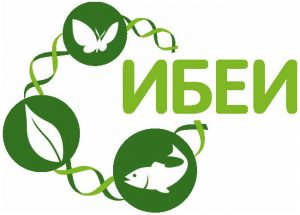Scientists from the Institute for Biodiversity and Ecosystem Research at BAS: Only activities that contribute to biodiversity are to be allowed in national parks
10 Jun, 2024 | 16:59The MOEW and the directorates of the three national parks in Bulgaria "Rila", "Pirin", and "Central Balkan" received an expert opinion from the Institute of Biodiversity and Ecosystem Research (IBER) at the Bulgarian Academy of Science (BAS) regarding the annual plans for grazing in the three parks for 2024. The opinion was also sent to the Prime Minister, the Minister of Agriculture and Food, the Bulgarian Bioproducts Association, the Bulgarian Agrarian Chamber, the Association of Agricultural Producers in Bulgaria, the Union of Livestock Breeders, as well as to the attention of the President of the Republic of Bulgaria.
The opinion came in response to the objections and negative interpretations by animal breeders against the new requirements for the implementation of the measure "Traditional practices for seasonal grazing (pastoralism)" on the territory of the national parks, published in no. 46 of the State Gazette. According to the scientists from IBER, these objections show a misunderstanding and a one-sided interpretation of the concept of pastoralism as an intervention, as well as of its legal basis.
This intervention was introduced exclusively and only for the protection of biological diversity in the high mountains, the text of the opinion strongly emphasizes. Scientists and biodiversity experts from BAS, Sofia University and the non-governmental sector were the mainly involved in its development. All of them have accumulated significant information for the last twenty years, which makes it possible to draw scientifically based conclusions about the state of natural habitats in the three national parks.
Grazing in the mountainous regions of Bulgaria has long-standing traditions and should be preserved, is the opinion of BAS scientists. However, overgrazing leads to habitat damage and degradation. In addition to biodiversity loss, this also decreases the prospect for the effective use of the high mountain fodder resource in the coming years also decreases, which should be of interest for animal breeders to a greater extent. Instead, their insistence on the removal of restrictive measures shows a lack of a clear and long-term vision for their own business, which depends on these resources provided by grassland habitats.
In 2024, the directorates of the three national parks commissioned the IBER at BAS to assist in the monitoring of the highland grasslands to determine the status of natural habitats protected under the Biodiversity Act. In this regard, IBER scientists emphasize that only activities that support biodiversity are allowed in national parks. Neither the measure of pastoralism nor the status of the protected areas implies the use of the areas for economic purposes. For the natural habitats included in Appendix I of the Law on Biological Diversity (pastures and meadows according to their permanent use), which are protected in national parks, the state has the obligation to protect, maintain and, if necessary, to take measures to improve nature protection and their condition, which is directly related to reducing the grazing load. We believe that the legislation and the resulting obligations, restrictions and responsibilities must be unconditionally respected, the opinion said.
